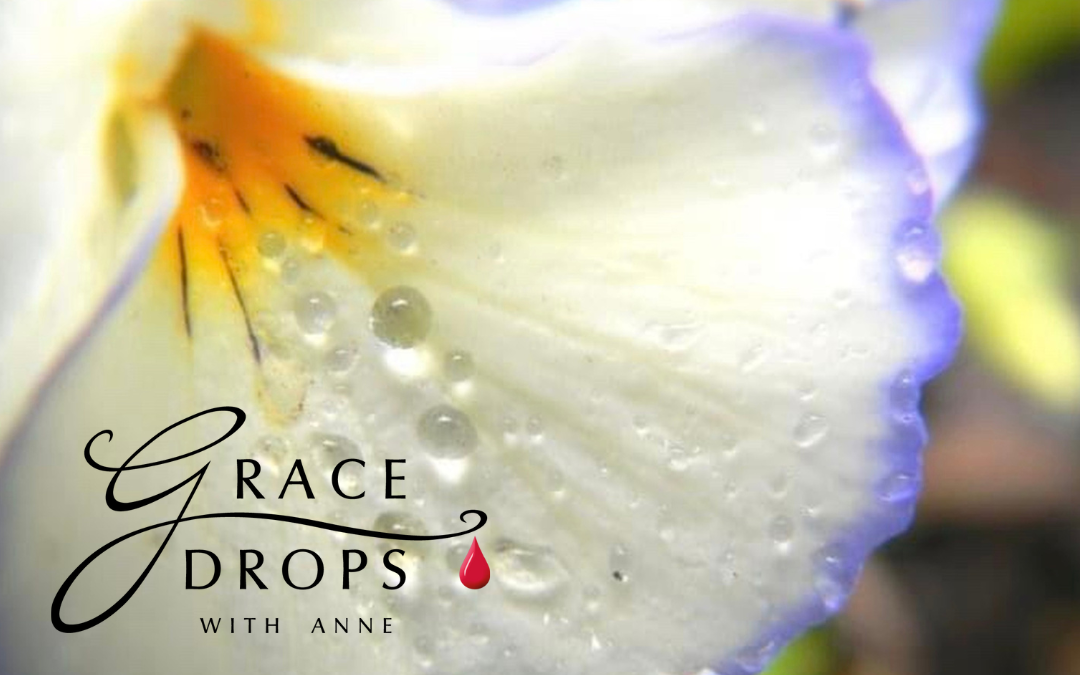Every strategy God gives us for a threshold is different.
God’s strategy for me as I approach my calling will be different from His strategies for you as you approach yours. And yet there will be common weapons He will ask us to deploy and common tactics He will require us to implement.
To defeat Python, the spirit of constriction, we are to be armed with love. To battle Ziz, the spirit of forgetting, we need the protection of joy. To overcome Leviathan, the spirit of retaliation, we have to unpack our arsenal of peace, in many and varied facets of shalom.
Don’t all these munitions seem, by their very nature, contradictory? Love as a weapon? Let’s remind ourselves, yet again, that these are the Fruit of the Spirit. As once, back in the Garden of Eden, fruit was weaponised against humanity, so now by the sowing-and-reaping principle the Fruit of the Spirit become weapons to defeat the enemy of our souls.
So when it comes to Rachab, the spirit of wasting, which aspect of the Fruit is the one that sets us on the path to victory?
It’s patience.
Having said that, however, it’s not quite as simple as it might first appear. Some of us are good at waiting. But waiting, in and of itself, is not patience. In fact, it can very easily be exactly the opposite. Waiting can default to doing nothing. Particularly if we’ve had to wait for a long time, we can slide by slow degrees into a passive state where hope has frayed to a thin thread and we’ve pretty much given up. Once we’ve reached the point of doing nothing, we’ve played straight into Rachab’s hands. Isaiah prophesies about the uselessness of trusting in such help:
Envoys carry their riches on donkeys’ backs, their treasures on the humps of camels, to that unprofitable nation, to Egypt, whose help is utterly useless.
Therefore I call her Rahab the Do-Nothing.
Isaiah 30:6–7 NIV
Godly patience is an active, not a passive, state. It is a supernatural gift that comes from waiting on God, not waiting for God.
In addition, before we can properly exercise patience so as to overcome the spirit of wasting, we first need to utilise another aspect of the Fruit—self-control, or more properly and accurately, Spirit-empowerment. This is the weapon of choice that is efficacious against the spirit of rejection and of panic.
It is only when we have first mastered rejection (not cast it out, as many people feel compelled to do) that we are ready to allow patience to do its perfect work. Overcoming wasting is a slow process and that’s why we need patience. It has to be slow and methodical. Otherwise we cannot retain hold of the territory within ourselves that God has helped us to conquer nor can we remain in occupation of what we have won in His name and by His power.
This is Grace Drops and I’m Anne Hamilton. May godly patience achieve its perfect work in you.
Thank you to Lorna Skinner of www.riversofmusic.co.uk for the background music.

To deal with the spirit of wasting, you first need to be able to overcome the spirit of rejection. To learn how to master it, see Dealing with Azazel: Spirit of Rejection is available as a paperback.In addition, understanding false refuges is the single most important step towards dealing with the obstacles barring you from coming into your calling. Hidden in the Cleft explains false refuges in more detail and is available as a paperback or an ebook.


I am only now learnind of all the spirits that try to control our heart and mind,thank you for helping me to learn and to trust.
Please elaborate on waiting for God and waiting on God.
Question. How are these Threshold spirits able to be everywhere all at once..guarding me ….guarding everyone else…at the same time?
Hi Alberta – because they are spirits, they can be at more than one place at once. However, they can’t be everywhere. An analogy is radio waves that can be heard in different localities at the same time, but not everywhere. Because of their limitations, these spirits limit themselves to the occasions in life when we are crossing thresholds. That’s why they are threshold guardians – they only turn up at the times when we are taking steps to enter our calling – or, since they cannot know what our exact calling is but can make a good guess, taking steps that may possibly give us entry to our calling.
Waiting FOR God is a passive state in which we are not preparing or being actively vigilant. Waiting ON God is a pro-active state of readying ourselves. For example, suppose God has called you to be a leader and you sense this is the case. Waiting FOR God would be just hanging on until the appointment comes to pass; but waiting ON God would be taking a study course in leadership skills so you are prepared when the opportunity arises.
I so love your writings/podcasts. They’re quite thought provoking and engaging. I’m definitely diving deeper into the Fruit of the Spirit, and this helps a lot. Thank you, Anne!
Hello!
Can you speak more or direct me to a more in depth study on mastering the spirit of rejection rather than casting it out?
Hi Bridgette – Amazon has the book on rejection here for a ridiculous price. https://www.amazon.com.au/Dealing-Azazel-Rejection-Strategies-Threshold/dp/1925380297
If you would like the book, please contact me via armourbooks.com.au for about half what they are presently asking.